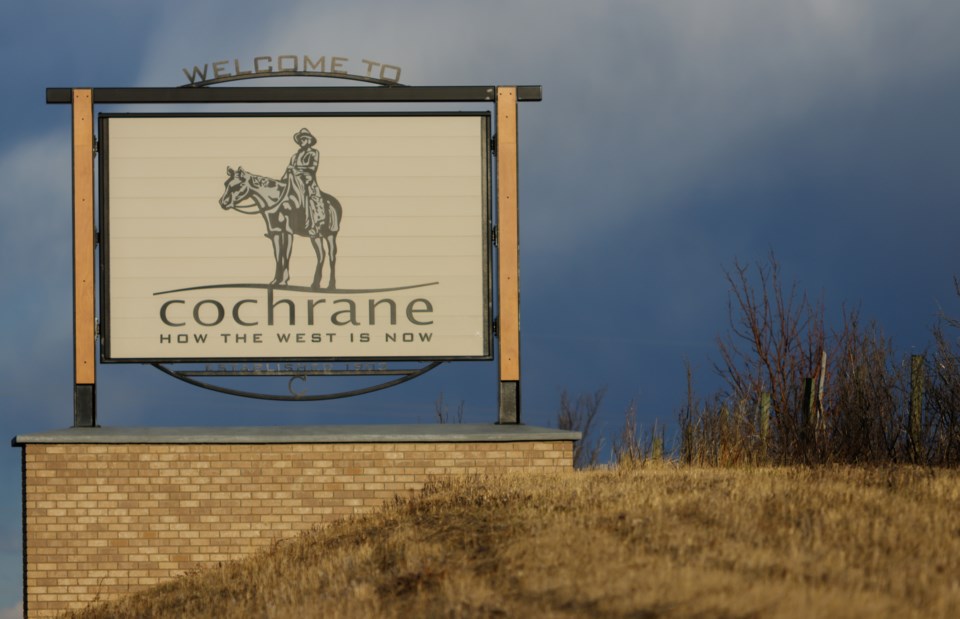COCHRANE— Councillor Marni Fedeyko is calling on the Town to create an inclusivity statement to ensure everyone who calls Cochrane home feels welcomed in the community.
Fedeyko said at the Sept. 14 council meeting, creating an inclusivity statement needs to be a priority in Cochrane because nothing is more important than creating a community for everyone.
“I think Cochrane has the most amazing hearts. It is one the best communities I have ever lived in ... But, it doesn’t mean everybody necessarily feels that, or we can’t do better," she said. “We’ve come a long way— This is just another step.”
Fedeyko noted she is not coming forward with a direct idea and result, because the statement needs to be flexible and able to adjust based on the needs in the community.
“This isn’t about the majority of Cochrane,” Fedeyko said. “If you’re the minority person and you’re looking at it, it means a great deal for the community to come forward and have something that says ‘yes you are included.’”
The statement will not necessarily become any type of bylaw and will focus on being a declaration pushing for change in the community to support those who experience marginalization.
“It’s just the start of making sure people feel like they are all included here,” Fedeyko said.
Creating a statement offers the chance to encourage empathy in people when talking about challenging subjects like privilege, racism and bigotry.
Fedeyko said she has received some pushback from residents, but hopes people will be able to understand and unpack the experiences of those who are from minority groups.
“Real change comes from discussions. It comes from collaborations. It comes from absolutely understanding somebody else’s point of view,” Fedeyko said. “I don’t expect everybody in Cochrane to embrace this. I don’t expect everybody to suddenly come together— I’m not expecting people to necessarily support it, but I do want people to accept that everybody is welcome here.”
During the meeting Coun. Morgan Nagel said he was unsure about the motion put forward because it lacked clarity.
Nagel said he believes in equality, but the push for acceptance of diversity needs to come from a grassroots level.
“I truly believe in equality,” Nagel said. “I’m not coming at this from a perspective that I have a really old school, prejudice way of thinking.”
The government has no role in shaping and controlling culture, Nagel said, but people do need to be treated equally.
One of the issues with the statement brought forward at the Sept. 14 meeting, Nagel said, was no policy was attached. Nagel added he would like to see tangible steps proposed and talked about, but is uncomfortable endorsing a statement without a clear purpose.
A further problem, he added, is the statement politicizes the idea of equality and he is worried it will push people further apart as opposed to uniting them together.
Nagel praised Cochrane for the steps it has taken to become a welcoming community that integrates newcomers. He commended The Town of Cochrane for their ability to foster a diverse staff based on merit alone— He noted both senior management and Town council is gendered-balanced.
The key to combating racism or prejudice is to say something when you see something, Nagel said, true change comes when addressing an issue head-on when it occurs.
“You need to take a hardline stance and say that’s not OK, that’s not cool,” Nagel said.
He added that if a policy was to come forward he would potentially support it, Nagel said, as long as it remains moderate.
The crafting of a potential inclusivity statement will be spearheaded by the Town of Cochrane staff Equity and Inclusion Committee, said committee chair Melissa Engdahl.
The committee was struck in 2016 to support the implementation of the Town’s Social Policy which was design to use a lens of inclusion internally when assessing policies for staff when creating, delivering and exploring programs and services.
The Social Policy is centred on a statement that the Town of Cochrane is "inclusive and welcoming, striving to ensure that all residents have opportunities to fulfill their potential and healthy development through our thriving social, economic and cultural life."
The Cochrane Social Policy Framework has aimed to create six long term community outcomes— Participation and social inclusion for all, respect for diversity, shared responsibility for the social well-being of all, strategic resource allocation to identify service priorities in Town, collaboration to address complex social issues and coordination to form strategic and harmonized processes to ensure residents can achieve long-term success.
“Internally we focus a lot on the systemic pieces,” Engdahl said. “We needed to get our own house in order— Lead by example was really the goal.”
The committee is hoping to get more clarity on having an inclusion statement, what it means and who needs to be engaged to understand the role it will play in the community, she said.
Inclusivity can be a challenging topic of conversation, she said, as it is an ellusive topic to take action on it because it is a broad topic and means different things to different people.
Based on the Town's Social Policy oftentimes inclusion covers very specific human rights categories, but, can become more extensive and nuanced by incorporating different communities in Town and different people who may feel like they do not have the same voice as other groups.
The goal now is to get grounded in the community groups to engage and connect with different demographics in Town to help inform the creation of a potential inclusivity statement, Engdahl said.
It is important to talk about and understand the different experiences people can have as it can inspire change for the better.
“It about seeking first to understand,” Engdahl said. “It’s important that statements are made with intent behind them and action, and not just as a checklist.”
The Town of Cochrane is continuing to research the inclusivity statement. A report is expected to come before council in January.




